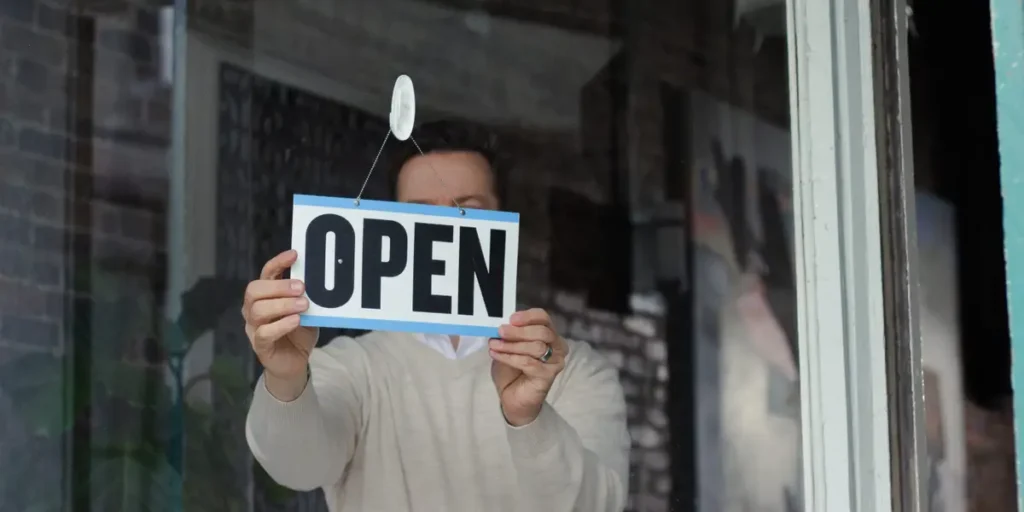Instead of sending out résumés and job applications during the Great Freeze, it could be a good time to get a business plan in order.
Ege Aksu, an economist at workforce intelligence company Revelio Labs, analyzed shifts in US entrepreneurship and hiring over the past few years, using data from public professional profiles on platforms like LinkedIn posted between 2019 and this past June. Clear patterns emerged: when hiring fell, the share of job switchers transitioning into entrepreneurship tended to heat up.
Aksu told Business Insider that people may be starting businesses out of necessity. Despite better-than-expected job growth in September, job gains were pretty concentrated, and Indeed Hiring Lab economist Cory Stahle said the US still has a cooling job market. Job-search platform ZipRecruiter described the labor market’s prolonged period of both employers and employees staying put as a “Great Freeze.” Bureau of Labor Statistics data showed that quits, layoffs, and hiring have remained low.
“We’re seeing employers and job seekers both trying to wait out any of the uncertainty,” Nicole Bachaud, labor economist at ZipRecruiter, previously told Business Insider.
Self-employment in many different forms is on the rise. ADP Research found that the number of independent contractors — which can include a range of workers, from delivery work to gig economy freelancers — surged by 50% between 2019 and 2024.
“This growth accelerated in the second half of 2020 and first half of 2021, driven by pandemic-driven labor shifts, remote work, and the expansion of online platform-based services,” economist Łukasz Below wrote.
Aksu expects the share of job switchers transitioning into entrepreneurship to continue increasing because she doesn’t expect the hiring slowdown to quickly fade next year. Aksu expects more graduates to turn to business ventures because of the tough job market, too.
What to do before starting a business or pursuing self-employment
Sharon Miller, president of Business Banking at Bank of America, said aspiring business owners should consider whether their idea matches their skills and passion, and if there’s demand for it. She suggested researching the potential competition and identifying the target audience. She said they also need to be ready to resolve problems, pivot when need be, and already have a business plan.
“What is your operation going to look like? What is the competition? What is your mission of the company? All of those things are important to lay out,” Miller said. “You’ve got to revisit those often because things do change, whether it be the economy or trends.”
You could give your idea a go as a side hustle, depending on your workplace’s rules.
“You have to be careful that you’re not doing anything competitive or anything that would concern your primary employer,” Ted Rossman, senior industry analyst at Bankrate, previously told Business Insider.
Meghan Lim, who pivoted from a financial analyst job to self-employment, previously told Business Insider that people should start with just one side hustle. She also suggested having an emergency fund and waiting until your side earnings exceed your day job’s income for a few consecutive months.
“It’s also important to ask yourself why you’re doing it. Are you fulfilled with doing it? And do you see yourself doing this for the next few years?” Lim said.
Aksu said it may be easier for people to start their own businesses than in the past, with the help of AI tools and flexible work options.
“It’s maybe speaking to work culture and autonomy, flexibility that are more talked about in today’s job market,” Aksu said.
Did you make a career pivot into starting your own business? Reach out to this reporter to share at [email protected].


